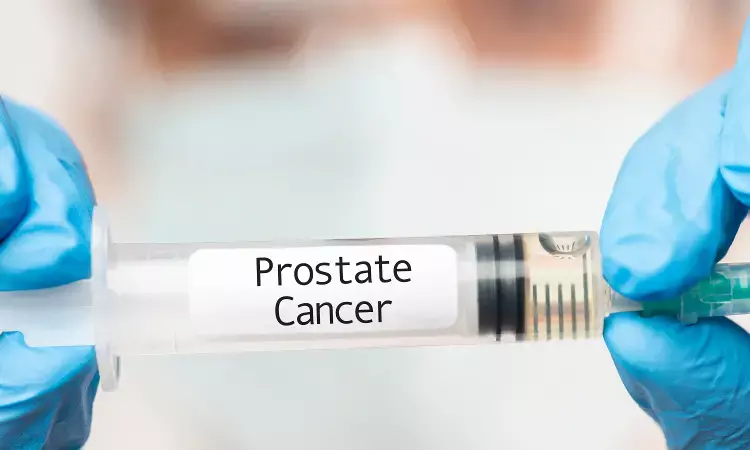- Home
- Medical news & Guidelines
- Anesthesiology
- Cardiology and CTVS
- Critical Care
- Dentistry
- Dermatology
- Diabetes and Endocrinology
- ENT
- Gastroenterology
- Medicine
- Nephrology
- Neurology
- Obstretics-Gynaecology
- Oncology
- Ophthalmology
- Orthopaedics
- Pediatrics-Neonatology
- Psychiatry
- Pulmonology
- Radiology
- Surgery
- Urology
- Laboratory Medicine
- Diet
- Nursing
- Paramedical
- Physiotherapy
- Health news
- Fact Check
- Bone Health Fact Check
- Brain Health Fact Check
- Cancer Related Fact Check
- Child Care Fact Check
- Dental and oral health fact check
- Diabetes and metabolic health fact check
- Diet and Nutrition Fact Check
- Eye and ENT Care Fact Check
- Fitness fact check
- Gut health fact check
- Heart health fact check
- Kidney health fact check
- Medical education fact check
- Men's health fact check
- Respiratory fact check
- Skin and hair care fact check
- Vaccine and Immunization fact check
- Women's health fact check
- AYUSH
- State News
- Andaman and Nicobar Islands
- Andhra Pradesh
- Arunachal Pradesh
- Assam
- Bihar
- Chandigarh
- Chattisgarh
- Dadra and Nagar Haveli
- Daman and Diu
- Delhi
- Goa
- Gujarat
- Haryana
- Himachal Pradesh
- Jammu & Kashmir
- Jharkhand
- Karnataka
- Kerala
- Ladakh
- Lakshadweep
- Madhya Pradesh
- Maharashtra
- Manipur
- Meghalaya
- Mizoram
- Nagaland
- Odisha
- Puducherry
- Punjab
- Rajasthan
- Sikkim
- Tamil Nadu
- Telangana
- Tripura
- Uttar Pradesh
- Uttrakhand
- West Bengal
- Medical Education
- Industry
PSA prostate cancer screening found more beneficial than previous estimates, especially for blacks

New research led by investigators from Weill Cornell Medicine, Fred Hutchinson Cancer Center, University Hospitals Cleveland and Case Western Reserve University found that prostate cancer screening with the prostate specific antigen (PSA) blood test has remarkably favorable tradeoffs. This is particularly true for Black men, the investigators found, who disproportionately bear the burden of prostate cancer mortality and morbidity, and who are underrepresented in clinical trials.
Using epidemiologic data spanning a greater time period than previous estimates, the investigators produced new calculations of the number of men who were diagnosed and treated as a consequence of PSA screening as compared to the number of cancer deaths avoided. Their findings were published May 15 in NEJM Evidence.
Previous calculations over a decade ago estimated that, at best, one death was prevented for every 23 men diagnosed with prostate cancer as a consequence of screening. This suggested that too many men were experiencing the negative effects of a prostate cancer diagnosis as compared to those who benefit to recommend use of the screening test.
For their calculations, lead author Dr. Spyridon Basourakos, a resident in urology at Weill Cornell Medicine and NewYork-Presbyterian/Weill Cornell Medical Center, and colleagues improved on the previous estimates of overdiagnoses and overtreatment. Namely, they included 11 more years of data than prior estimates; calculated estimates for men of all races and Black men; and used complementary approaches to estimating overdiagnosis.
Under conservative assumptions about screening's benefits, the investigators estimated that for men of all races one death was prevented for every 11 to 14 men diagnosed with prostate cancer and every 7 to 11 men treated for the disease. For Black men screening resulted in one death prevented for every 8 to 12 men diagnosed, and every 5 to 9 men treated. For more optimistic assumptions about screening, these tradeoffs were even more favorable, with numbers needed to treat in the low single digits for Black men.
The new analysis supports PSA screening, particularly for Black men and others at high risk, and highlight the need to revise clinical guidelines to accurately reflect the value of screening, the authors wrote.
Read the full article at:
Dr Kamal Kant Kohli-MBBS, DTCD- a chest specialist with more than 30 years of practice and a flair for writing clinical articles, Dr Kamal Kant Kohli joined Medical Dialogues as a Chief Editor of Medical News. Besides writing articles, as an editor, he proofreads and verifies all the medical content published on Medical Dialogues including those coming from journals, studies,medical conferences,guidelines etc. Email: drkohli@medicaldialogues.in. Contact no. 011-43720751


